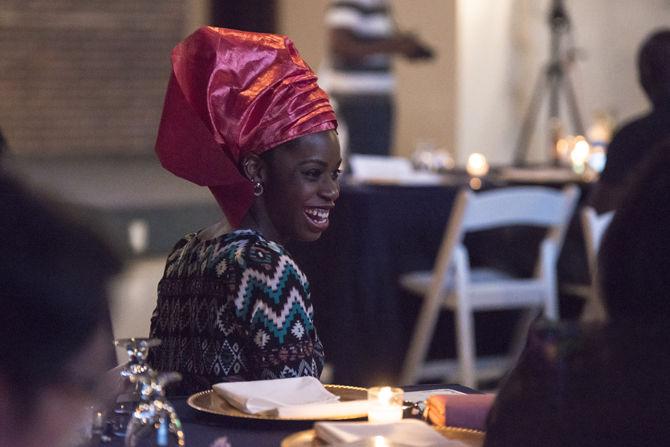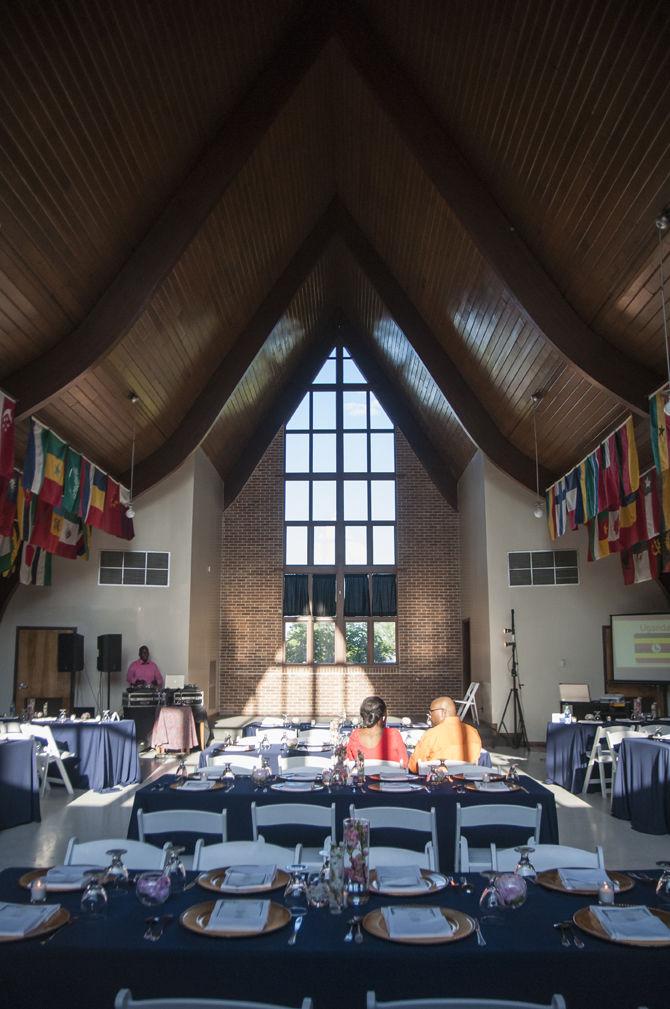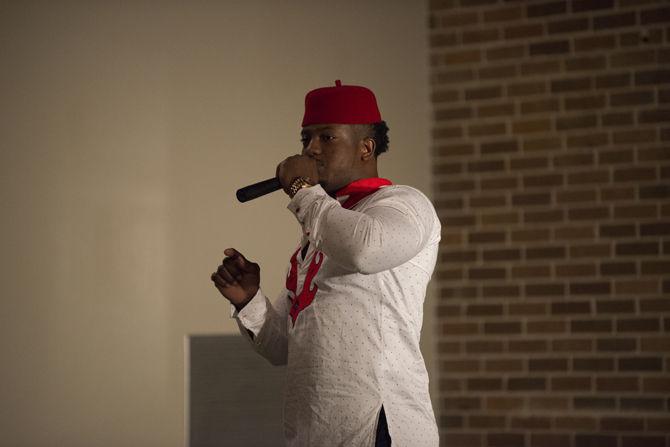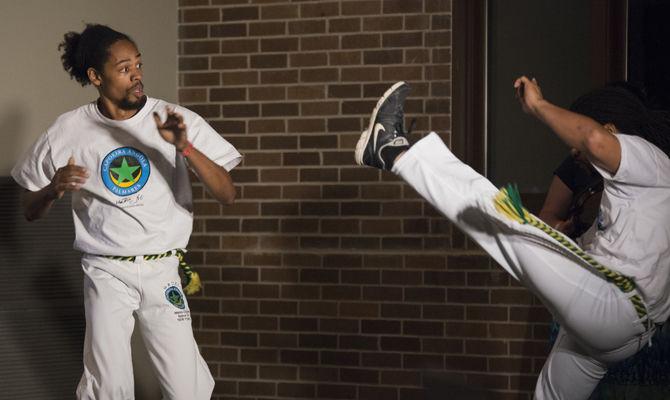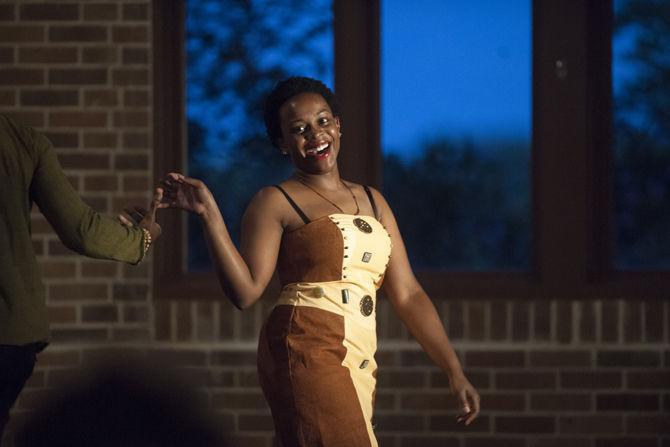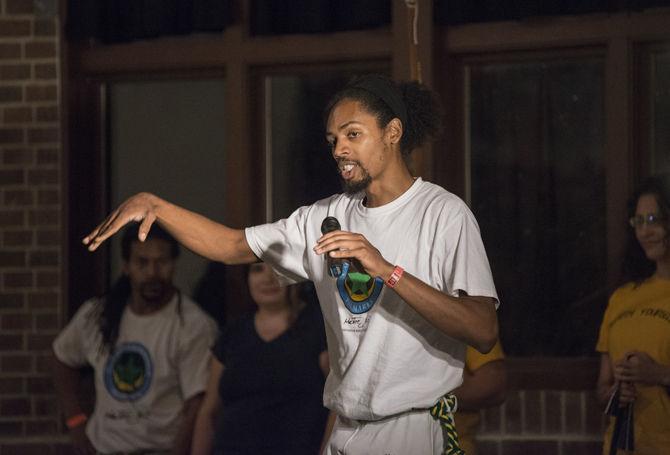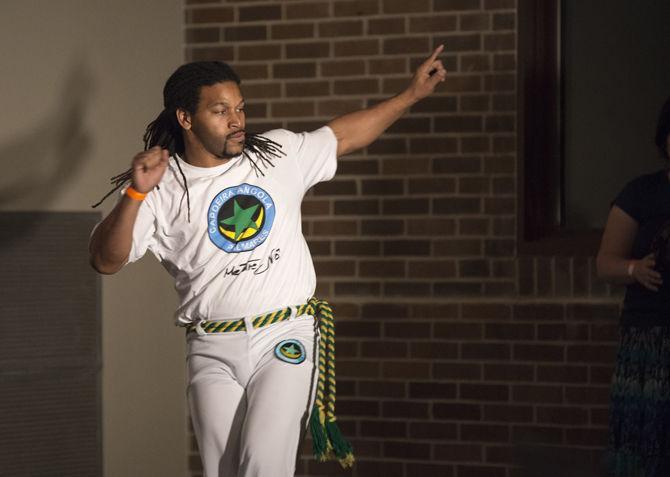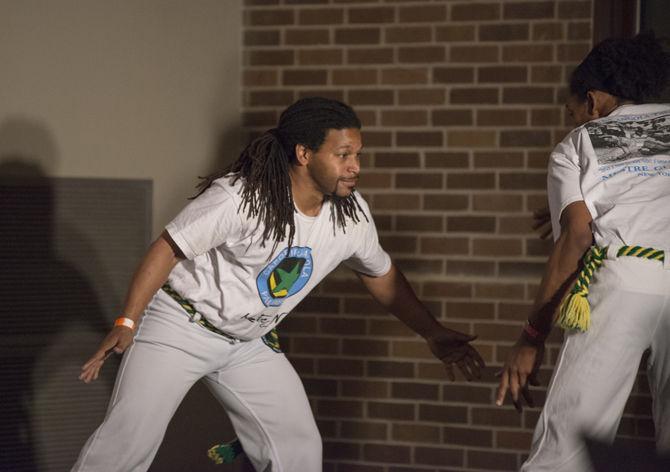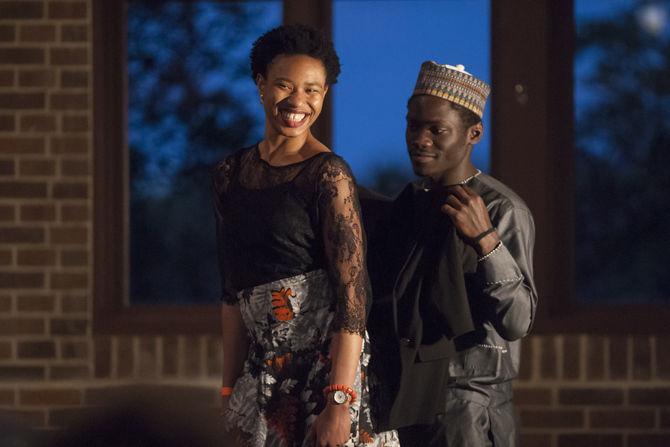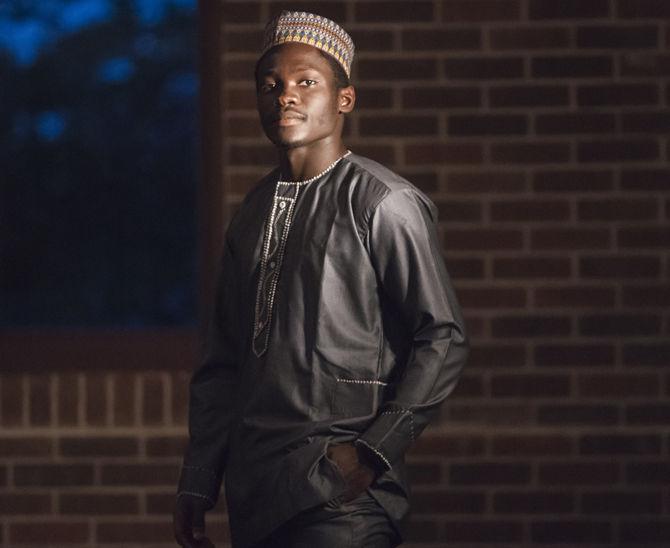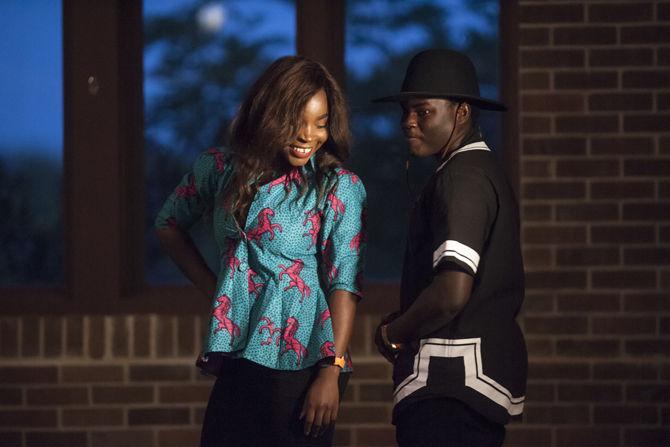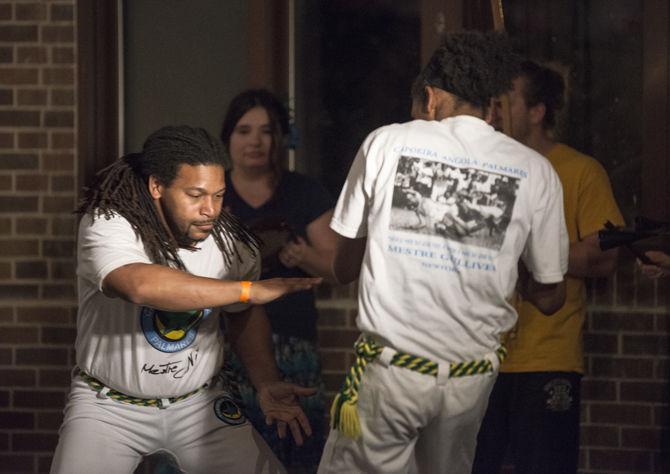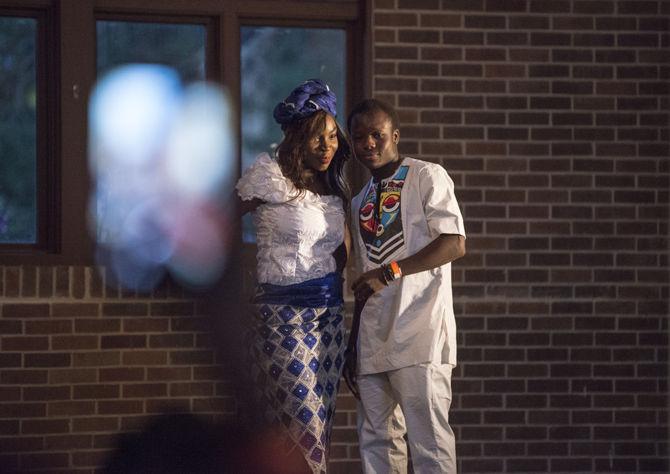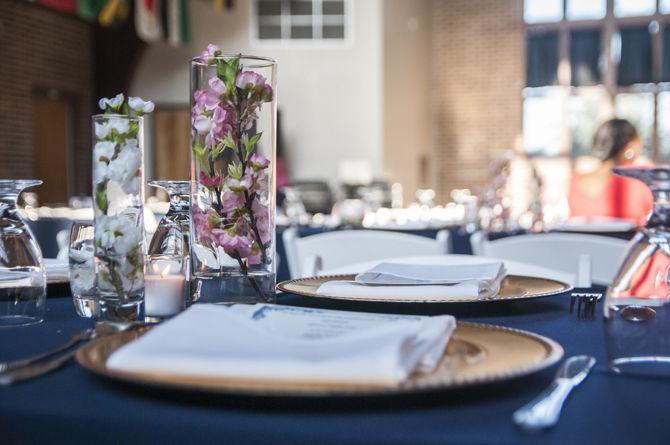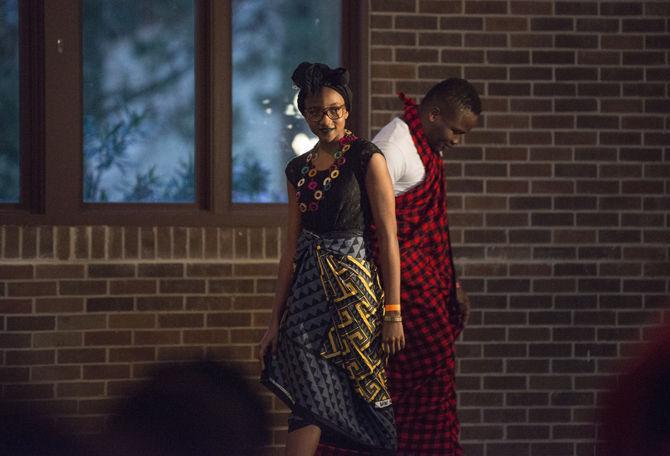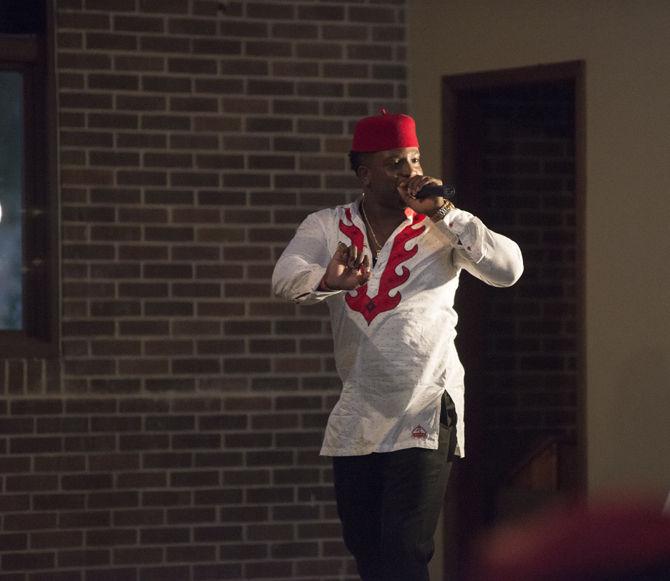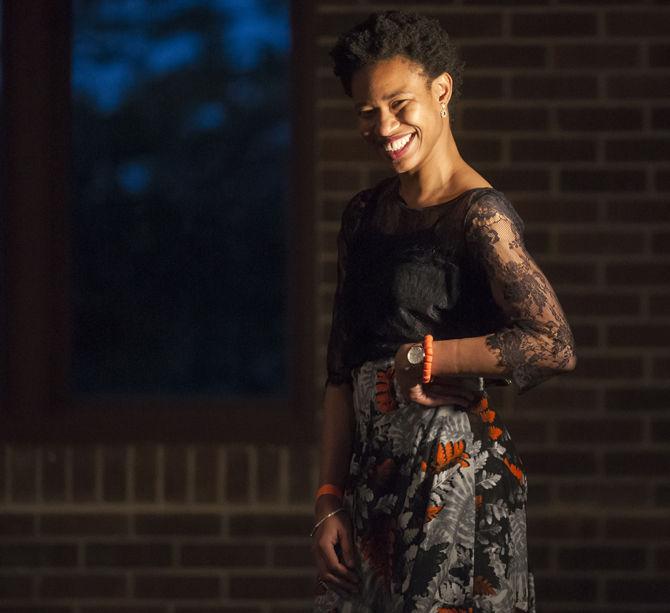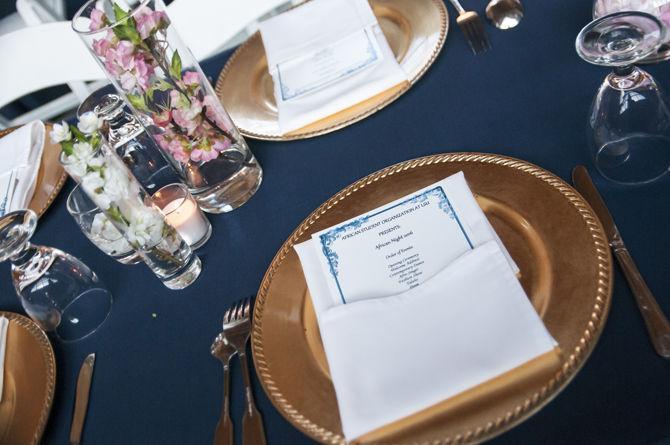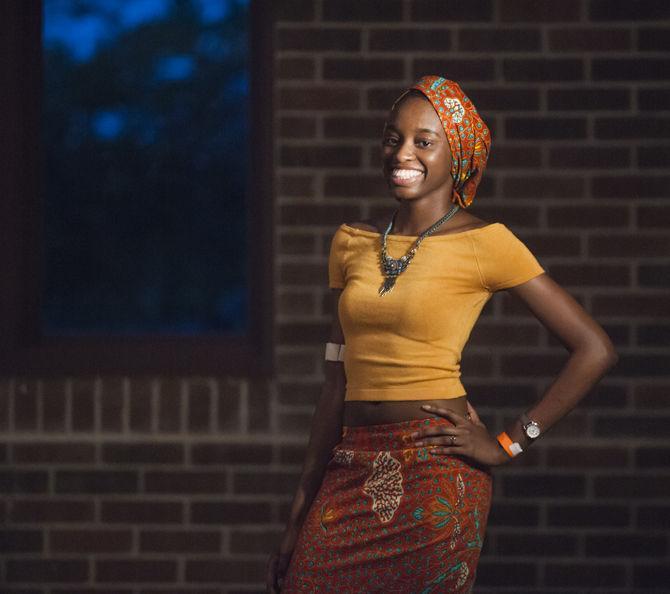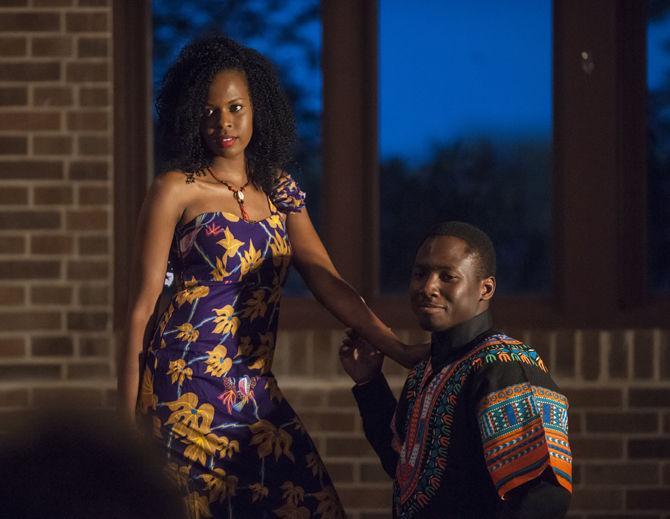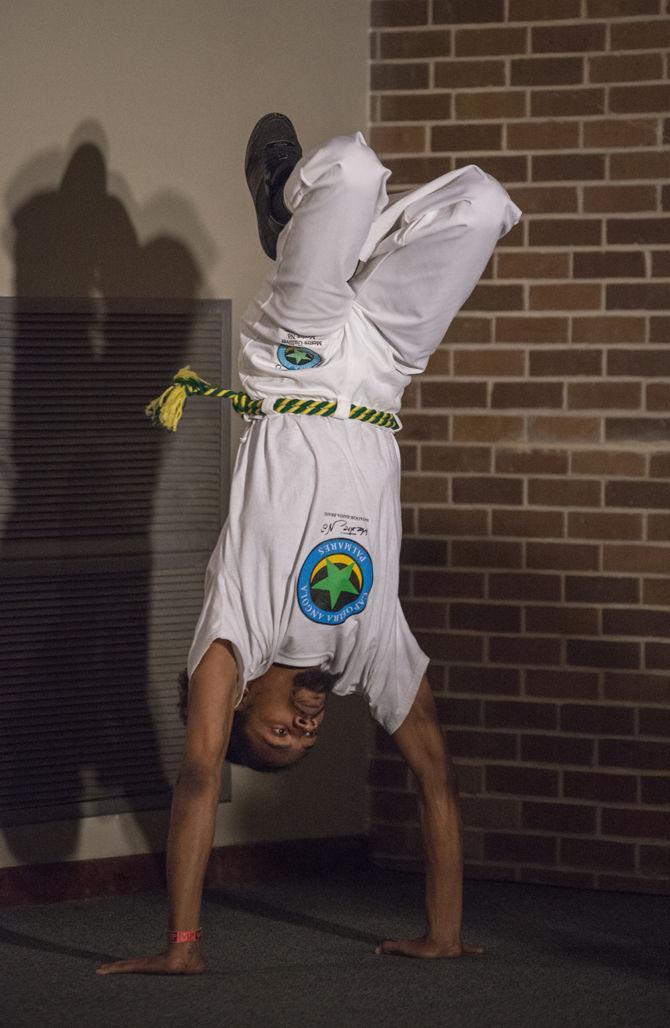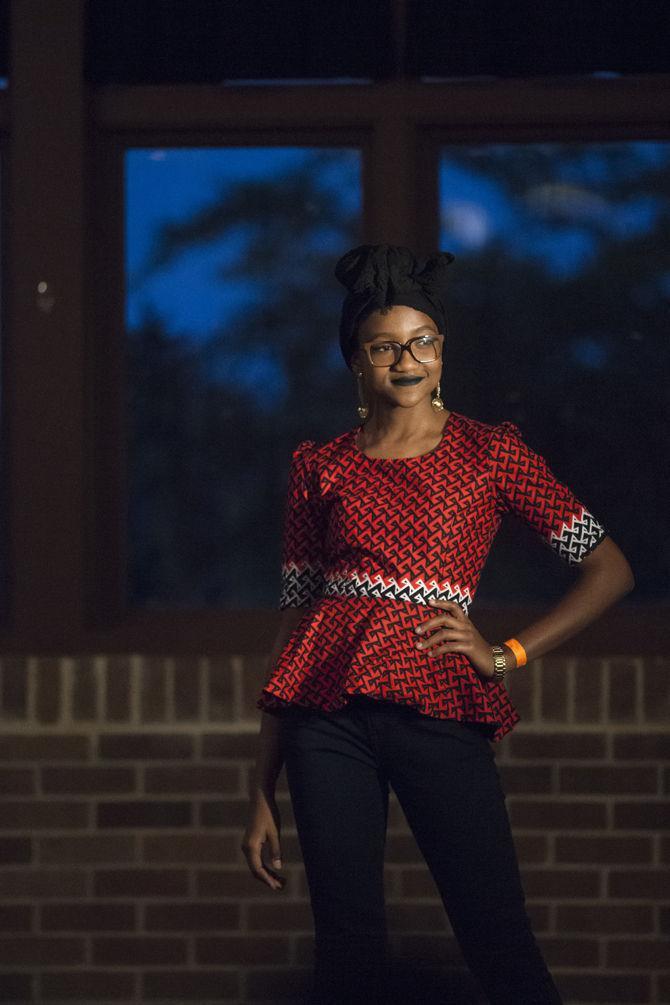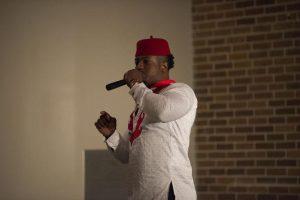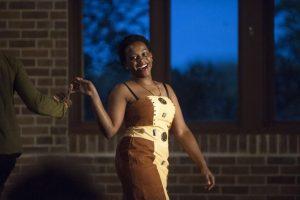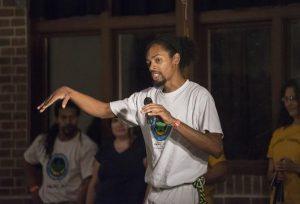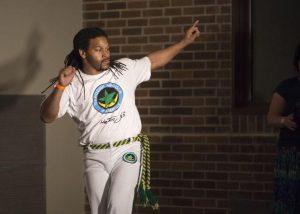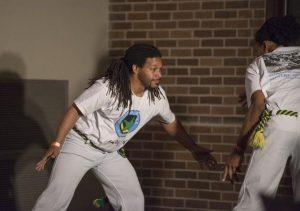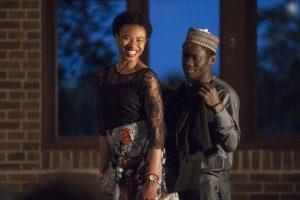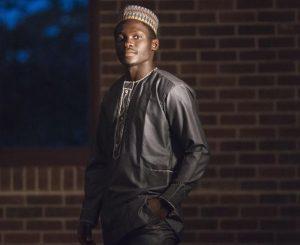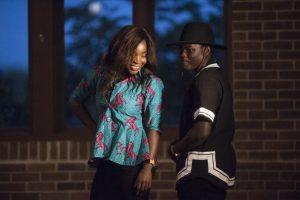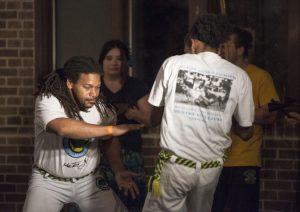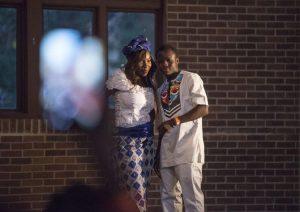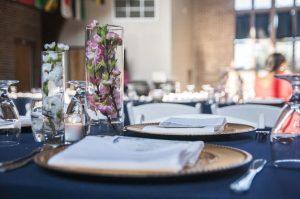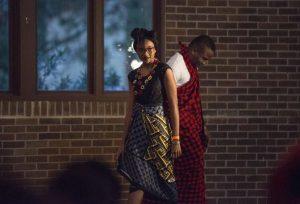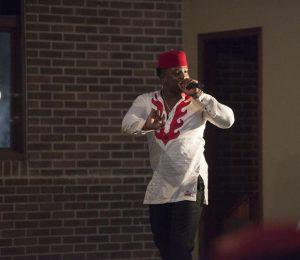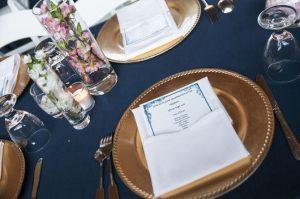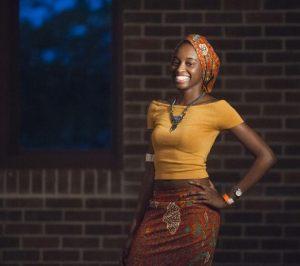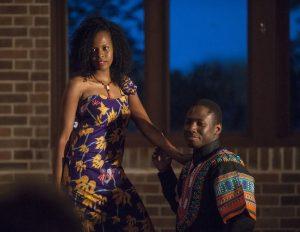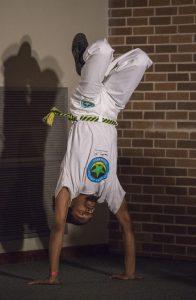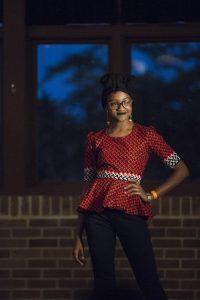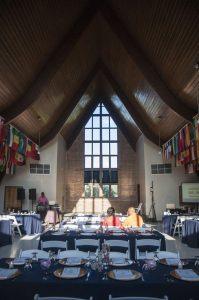African students and community members gathered in the International Cultural Center Saturday evening for African Night — an annual celebration of different cultures and practices from countries across the continent.
“It’s a time for us to come together and show LSU who we are [and] what we’re about,” said petroleum engineering junior Mudiaga Ovuede, who wrote and read poetry for the audience.
Nigeria, Uganda, South Africa, Sierra Leone and Ghana were among the countries represented throughout the night. Guest comedians and singers entertained the audience, many of whom wore traditional clothing and jewelry from their cultural backgrounds. Attendees were able to dine on dishes that drew from a variety of African culinary traditions as the evening went on.
“This year’s theme is ‘Echoes of Africa,’ to represent all the sounds, all the cries of people around Africa in the last year,” said petroleum engineering senior and African Student Organization president Babajide Ajayi.
Both traditional and modern aspects of African cultures took the center stage, as students recited original poems while others walked through the audience to show different styles of dress.
The contemporary fashion combined African and Western cultures with Nigerian, Kenyan, Rwandan, and Burundian clothing styles represented onstage, said chemical engineering junior Precious Orji.
“Presently, most people really don’t know their roots,” Orji said. “It’s something to show some of the cultural aspects of the Motherland.”
Orji said she hoped people would view Africa as a variety of different countries rather than a single entity after becoming more familiar with the diversity of cultures.
“We’re very happy to have non-Africans come to this event and see for themselves the culture and just be around people from the Motherland,” Ajayi said.
Martial artists from Capitol City Capoeira took the stage for a demonstration of capoeira, a martial art created by Africans who were kidnapped and taken to Brazil as plantation slaves. The slaves trained to fight against their Portuguese overlords by combining fighting styles from numerous African tribes, practicing to the beat of music as if dancing.
“We’re always upside down,” said capoeira teacher Goran Jagetic. “We’re always jumping. We’re always moving in a weird way.”
The slaves went by nicknames so they could not reveal the identities of the others if captured, a custom modern capoeira practitioners maintain, Jagetic, who goes by “Hobbit,” said.
Chemical engineering junior Ajibola Ashade encouraged people to educate themselves on the realities of Africa and African cultures to dispel popular misconceptions.
“Don’t be satisfied with ignorance,” Ashade said. “At least find out the basic languages we speak. Most people think that we don’t speak English, and in most African countries, English is the first language we speak.”
African Night brings together community for night of culture
By Trent Parker
April 24, 2016
The LSU African Student Organization presents African Night on Saturday, April 23, 2016 in the Multicultural Center.
More to Discover


